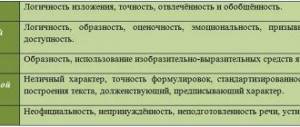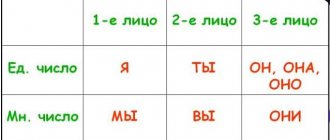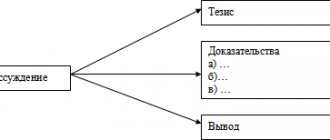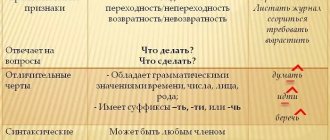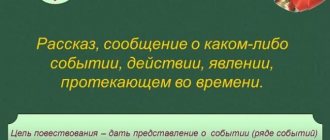Download material
so UNT / Lesson plans for the Russian language / Lesson plans for the Russian language 8th grade
Lesson No. 19. COMPOUND NOMINAL PREDICATE
03.11.2011 33275 2840
Lesson No. 19. COMPOUND NOMINAL PREDICATE
Goals:
give the concept of a compound nominal predicate, its parts; deepen the concept of the role of the verb connective.
I. Vocabulary dictation.
Vacations, route, surprise, amaze, bibliographer, majority, theater, rehearsal, director, congress, conference, constitution, conveyor, consultation, abstract, component.
II. Independent work.
Compose with verbs to surprise
(I century),
strike
(II century) 3 sentences each, in which this verb would act as a simple verbal predicate (2 sentences) and a compound verbal predicate.
III. New material.
1. Work with a compound nominal predicate should also begin by comparing a simple predicate with a compound nominal predicate, showing the same verb in the role of a connective and in the role of an independent predicate. This can be done using the material in ex. 123.
Additional material.
He will be with us tomorrow. He will be the first. The book ended up in the briefcase. The cup turned out to be broken. The cashier counts the money. He is considered a good worker.
2.
Then students read § 14 and conclude which predicate is called a compound nominal.
3. To deepen the concept of the role of the linking verb, supporting words are written in notebooks that organize the logic of the answer:
1) the most common...
2) less common...
3) can act as ligaments...
IV. Consolidation of what has been learned.
1
. Rearrange the sentences so that the simple verbal predicate becomes a compound nominal.
Example: The street is empty. The street became empty.
1.
He often comes to see me. 2. The boy is growing up quickly. 3. The brother leads the group. 4. The sky is darkening.
2.
Determine the type of predicate in sentences.
/. We listen to the radio.
Today we will listen to an interesting program. We will start listening to this program after dinner.
He will be a student at a school lecture. 2. Be the mistress of this house. Be home today. The streets were decorated with flags and brightly lit. 3. I would be proud of you. I would be proud of you. I'm proud of you. 3. Replace full forms of participles and adjectives with short forms. Make sentences with some of them. Which part of the sentence is the short form? What spelling rules for participles and adjectives did you apply?
Lost keys, a desert area, a renovated room, a sown field, fresh bread, painted walls, a revised and rewritten manuscript, young artists, biting frost, hot sand, a clumsy bear, a lifeless desert, prickly rose hips, packaged and shipped cargo.
V.Task for
house:
§ 14,
ex.
129.
See the downloadable file for the full text of the material.
The page contains only a fragment of the material.
